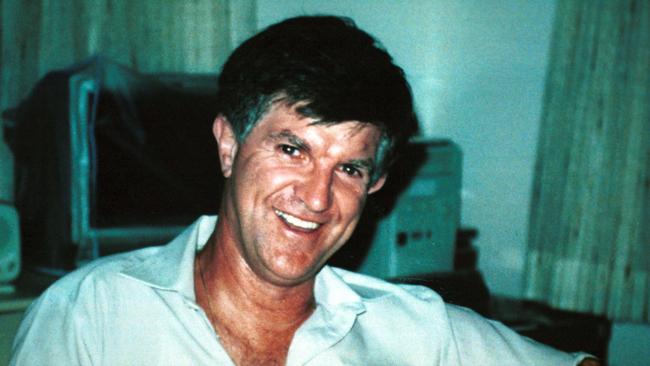Neil Andrew Pentland acquitted over murder of Philip Carlyle in 1997
The man accused of murdering Gold Coast businessman Philip Carlyle in 1997 has been acquitted, with the judge involved in hearing the case saying there were elements of prosecution evidence he did not accept.

Police & Courts
Don't miss out on the headlines from Police & Courts. Followed categories will be added to My News.
The son of Neil Pentland who was today acquitted of the 1997 murder of his business partner Philip Carlyle has lambasted police investigators and prosecutors, saying the case against his father had been “riddled with ineptitude compounded by mismanagement”.
Outside court, Mr Pentland’s son Adam Pentland thanked his father’s legal team including Defence Barrister Saul Holt QC.
“Without their tireless efforts and immaculate attention to detail, my fathers life would basically be over,” he said.

Mr Carlyle, 48, was shot four times at point-blank range on April 13, 1997 in a soundproof plant room at the offices of Gold Coast IT start-up Atnet, where he worked.
After a two-week Judge alone trial in the Supreme Court, Justice Glenn Martin this morning found Mr Pentland not guilty of the single charge of murder.
“Many negligent mistakes and failures have been made by investigators,” Adam Pentland told media outside court.
“These include not collecting crucial evidence, losing evidence, withholding evidence, failing to properly analyse evidence, ignoring witnesses and even ignoring the evidence of the police’s own forensic expert.
“All lines of inquiry that did not support the case against my father were abandoned and ignored. Because of these gross errors the murderer is extremely unlikely to be held accountable.”
Mr Pentland said he hoped he hoped to shine a spotlight on the way the investigation of his father was handled.
“The DPP was aware of these shortcomings and so resorted to absurd and child mental gymnastics put forward a patently flawed case.”

During the trial, the court heard evidence that marketing manager Mr Carlyle and Mr Pentland had a “good friendship” and were excited about closing a deal before the allegedly execution in a plant room at their offices.
Prosecutors had alleged that Pentland, now 72, fired four bullets into the 48-year-old father’s head in a “methodical execution”.
Pentland’s barrister Saul Holt QC argued the circumstantial case against his client was weak.
In his reasons for judgement, Justice Martin said he did not accept the prosecution evidence that the relationship between the two men had deteriorated “to an extent sufficient to provide motive”.
“I do not accept that,” he wrote in his findings.
“The material suggests that they had a number of disagreements about various aspects of the way in which ATNET should proceed with its projects, especially Insure-IT.
“But those disagreements were nothing more than one might expect from persons engaged in an enterprise with considerable pressure upon them, and in which each saw the prospect of considerable success.
“The exchanges between them, when they became heated, were conducted by email and usually concluded by each party accepting that the other had been genuine and only sought success for the business.”
Justice Martin said he did not accept that Pentland had motive to kill his business partner.
“There were friendly exchanges of emails on the Friday and Saturday before Mr Carlyle’s death,” he wrote.
“Indeed, they were congratulating each other on the efforts each had made in their dealings with Triangle Associates.
“I do not accept that the relationship between the defendant and Mr Carlyle was one which was deteriorating or in any way acrimonious.
“In fact the relationship was such that the defendant was dependant upon Mr Carlyle exercising his skills in marketing to procure the result which they both sought.”
Justice Martin found Pentland not guilty on the single charge of murder.
“The prosecution has not demonstrated to the required standard all the elements necessary to constitute the offence of murder,” he said.
